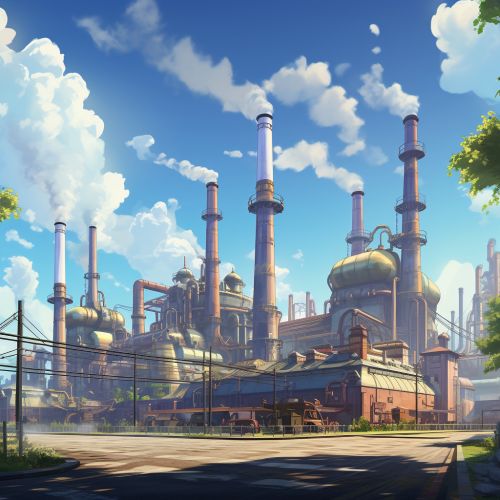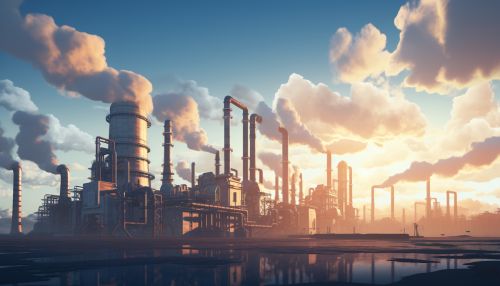Industrialization
Origins of Industrialization
Industrialization, as a historical phenomenon, originated in the late 18th century with the Industrial Revolution in Britain. The Industrial Revolution marked a shift from an agrarian and handicraft economy to one dominated by industry and machine manufacturing. This transition was characterized by a series of radical changes in economic production, technological advancements, societal organization, and cultural patterns.
Characteristics of Industrialization
Industrialization is characterized by the mechanization of labor, the concentration of industries in urban areas, and the use of inanimate sources of energy like coal and oil. It also involves the application of scientific knowledge to industry, the growth of large-scale factory production, and the development of a complex transportation and communication network.


The Process of Industrialization
The process of industrialization involves the transformation of an economy from primarily agricultural to one based on the manufacturing of goods. Individual manual labor is often replaced by mechanized mass production, and craftsmen are replaced by assembly lines. Characteristics of this transformation include a shift from rural to urban living, an increase in living standards, and the wide-scale implementation of capitalistic economic principles.
Impact of Industrialization
Industrialization has had significant impacts on society, the economy, and the environment. On the societal level, it led to the emergence of new classes of people, changes in daily life, and the creation of new governmental and economic systems. Economically, it led to the creation of a wealthier society, but this wealth was unevenly distributed, leading to new social problems. The environmental impact of industrialization has been significant, with many arguing that it is one of the main causes of the ongoing environmental crisis.
Industrialization in Different Regions
Industrialization has occurred at different times and rates in different regions. The first region to industrialize was Western Europe, during the Industrial Revolution. This was followed by North America, and then by Eastern Europe. In the 20th century, East Asia has been the fastest industrializing region.
Criticisms and Challenges of Industrialization
Industrialization has been criticized for its negative impacts on the environment, including pollution and deforestation, and for its role in creating significant social and economic inequality. It has also been criticized for its role in promoting a consumer culture and for its impacts on mental health and well-being.
Future of Industrialization
The future of industrialization is uncertain, with many arguing that we are moving into a post-industrial age, characterized by a decline in manufacturing and an increase in service industries. Others argue that industrialization will continue to spread to developing countries, and that the challenges of industrialization, such as environmental degradation and social inequality, will need to be addressed on a global scale.
